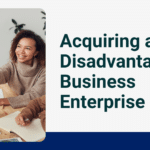The Convertible Note, By Sutter Law, San Francisco, and Silicon Valley Business Law Firm
Table of Contents
- The Convertible Note
- The primary advantage of the Convertible Note
- Duration.
- Discount.
- Cap.
- Conclusion
- Help
The Convertible Note
Is an often-used security instrument for newly formed companies raising money, and one that every San Francisco and Silicon Valley Startup should have in its pocket for when investors come calling.
You should also have your business attorney on the ready because once an investor agrees to your terms, you need to act fast to close the deal. No investor wants to wait for you to get your attorney up to speed.
Generally speaking, the Convertible Note is issued to an investor by the Company as a loan, recorded on the Company’s books as debt, payable over a specific period of time, and accruing a specific simple interest rate.
However, at a certain time – upon the occurrence of specified material events, most likely a subsequent round of investing (called a “qualified financing round”), or upon the natural expiration of the term – the debt will convert into an equity interest in the Company at a number of shares equal to the repayment amount of the loan and interest.
No longer is the investor a debt holder on the Company books, but instead a shareholder.
The primary advantage of the Convertible Note
Is that it delays valuation? Obviously, to sell shares, the Company needs to establish a per-share price, which in itself requires a determination of the overall value of the Company.
Valuation is prickly: it’s difficult to assess; it’s contentious between investors and founders; it can provide unwanted precedent for future investors; and, for a fledgling San Francisco Start-Up, it can be expensive both to obtain and for tax purposes.
Without losing interested investors now, the convertible note punts the valuation beehive down the road to a time later on when better metrics of company value (revenue, sales, etc.) exist to generate an accurate per-share price.
The following are terms of particular interest in the convertible note …
Duration.
One term that investors will be concerned with is Duration.
While the loan has a stated maturity date when it will expire naturally, the debt (and its interest) can convert automatically at any time during the life of the loan upon the occurrence of specified events (usually the issuance of stock of a specific value during a subsequent investment round).
If the loan matures without such occurrence, the loan holder still has the option to convert nonetheless.
Discount.
Since the most common conversion event for a convertible note is a subsequent round of financing, the discount allows the note holder to participate in the new round at a lower price per share.
For example, at a 25% discount, while a Series A round investor may buy shares at $1.00 per share, the existing note holder may convert from debt to equity at $.75 per share.
The note holder will bargain for this discount on the grounds that she should be rewarded for early entry into the San Francisco Start-Up when things were riskier and success was not guaranteed.
Cap.
The cap serves as an additional incentive for the note holder and acts in a similar fashion as the discount to generate a price per share value. In the qualified financing round, the cap refers to the limit on the valuation of the company only for the purpose of establishing a price-per-share value for the note holder’s conversion when the actual valuation of the Company is higher.
That is, valuation for conversion purposes is capped.
Say the cap for the note holder is $4 million.
In the event that the Company’s valuation for the qualified financing round was more than $4 million, the cap fixes the valuation at $4 million for the purposes of conversion of the note.
This ensures the note holder that, no matter the valuation for the other investors in the triggering round, she will retain a certain maximum purchase price at conversion.
Conclusion
Since it’s so advantageous to noteholders, the cap must be selected delicately since it can turn off investors during the qualified financing round. Furthermore, it seems self-defeating that the very instrument designed to avoid valuation hassles would actually have a valuation set within its provisions. This can become a problem if the note investor and the founders become mired once again in negotiation overvaluation. It should also be noted that the cap is not the company’s actual valuation, but instead merely a ceiling for purposes of conversion.
Help
San Francisco and Silicon Valley Startup companies should be aware of these important terms and the arguments behind them when headed into negotiations with investors over the terms of a convertible note. If you would like a free consultation with a San Francisco and Silicon Valley Business Attorney feel free to reach out to Sutter Law. To set up an appointment call or email.






